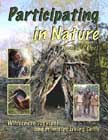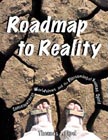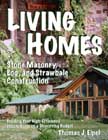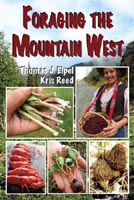Solo Across The Beartooth Plateau
August 25th - August 30th 2005
by Jeff Blend
My friend Tom Elpel and I were scheming again. Both of us needed to get outdoors for a week or so to clear out our heads and nourish our souls. Tom and I have gone on several primitive outdoor trips before and he owns Hollowtop Outdoor Primitive School in Pony, Montana. This time we planned to do a primitive camping trip hiking across the Beartooth Plateau of south-central Montana with two interns that were spending the summer with Tom.
The Beartooth Plateau is located in the Absaroka-Beartooth Wilderness. It is one of the most remote, beautiful and unforgiving places in the Lower forty-eight states, and it is a must for outdoor enthusiasts who want to explore the Rocky Mountains. Our original plan had been to walk sixty miles across the Bob Marshall Wilderness in northern Montana up steep mountains and through lush valleys. As fate would have it, Tom twisted his knee in early August while wrestling with his kids, so that original trip was put on hold. Two weeks later, it was decided that we would do the shorter but still rugged hike over the Beartooth Plateau.
The hike we planned started at the East Rosebud drainage on the north end of the wilderness area and ended near the small town of Cooke City, Montana on the south end. This particular trail is so popular with hikers and horsemen that some call it the 'beaten path'. The trail winds up a beautiful valley full of spectacular lakes and views and eventually ends up on top of the Beartooth Plateau. It then heads back down another valley, and ends at a highway near Cooke City. This hike has a lot of lakes with good fishing and the plateau on top is flat, treeless and unforgiving.
The weather forecast looked good for the parting day (unlike the forecast in New Orleans which was about to be destroyed by hurricane Katrina), so on Thursday we took off for the East Rosebud trailhead in Tom's van. The plan was for my wife Becky to drop us off at the trailhead and drive Tom's van back to his house, and then Tom's wife would pick us up in Cooke City when we were done with the hike. We figured that we would take our time and do the 26 mile hike (along with side trips) in about 7 to 10 days. This would give us time to explore and practice primitive skills, and would also give Tom's knee a break. The developed campground at the East Rosebud trailhead is set in a beautiful valley along with summer homes and what looks like a resort. There is a beautiful lake there, and we picked a camping spot for ourselves. Tom, myself, Becky, and the two interns Robert and Brian set up camp for the night. Basically, that only involved putting our sleeping bags out to sleep under the stars. We cooked deer steaks for dinner in a campfire along with onions from Tom's garden.
We ate the steaks and sat around the fire as it got dark. Brian was sick with a chest cold and Robert was not feeling great, so we all tried to get a good night's sleep. We generally slept well, and cooked some breakfast of potatoes Friday morning. I only got about two bites of breakfast for some reason. Brian was getting sicker by the minute so he went back to Tom's house with Becky in the van, while Tom, Robert and I took off for our first destination about 3.5 miles away--Elk Lake. The three of us went on to Elk Lake with our equipment, which consisted of a mix of backpacking and primitive survival gear. With primitive camping, each of us usually takes a knife, a cup to cook in, a little bit of food, a blanket, a primitive way to make fire (such as flint and steel) and the clothes on our back. Taking very little equipment is a way for each of us to figure out ways to provide the basic needs of survival out in the wilderness and to draw on our inner strength while escaping our usual habits of comfort (more on that later). On this trip, we brought along more stuff than usual, including more food, sleeping bags, plus a tarp to deal with possible precipitation (which could consist of anything in the Beartooths from rain to sleet to snow). Tom's knee injury prevented a more 'hard-core' survival trip.
At Elk Lake, the three of us picked out a site and rolled out our stuff. It was an established campsite near a big rock where we could build a fire and enjoy the reflective heat. Tom laid down to rest his knee, while Robert and I took off around the lake. I brought along an old fishing rod that Tom owned, and tried my luck at fishing. The rod was a piece of crap with too little fishing line and no release on it. I had no luck fishing, needless to say, and froze my feet standing in East Rosebud Creek which ran into Elk Lake. Robert practiced slinging rocks with a buckskin sling he made in order to kill a squirrel or some other small creature for dinner. I also practiced with it. Robert is so good at the sling that rocks whistle when he slings them, and he can hit tree trunks at least 100 feet way with consistency. Robert and I went back to camp, and we made some dinner. Dinner consisted of some King Bolete mushrooms that Tom found along the lake and some 'ashcakes' which are flour and water patties cooked on the hot coals. We then sat around the fire as the sky darkened and talked about many things from nanotechnology to politics to primitive skills to parasites (from a book Tom was reading). Robert is a conservative Republican from Arkansas while Tom and I are much more liberal, so the conversation was interesting. I enjoyed Robert's company a lot and looked forward to spending this trip with him.
We went to bed and as I woke up the next morning (Saturday morning), Robert was sitting by the fire with a glum look on his face. He was sick with the same thing Brian had and was coughing a lot. Tom and I made some medicinal tea for Robert from Oregon Grape root, Sweet Cicely root and the root of Solomon's Plume. The tea was good, but was not going to help our sick friend. Robert had wanted to go on this trip for a long time, but he would have to go home (and eventually see a doctor). Tom looked at me and said that I would have to make this hike solo. Tom ended up driving Robert to a hospital in Bozeman to get some medication on their way home. I did not want to go alone across the Beartooth Plateau, but Tom felt it was time for me to do a solo trip by myself, and before I could refuse, he handed me a bunch of equipment and food. Tom made a half-joke that maybe it was meant to be that I should go solo, considering Tom's knee and all the illnesses taking place with Brian and Robert. Tom said to call him in Cooke City when I got done, or to simply meet him there on Thursday evening, about five days from this particular morning. Before I could argue, they were on their way back to the East Rosebud trailhead where we had originally started.
Tom and Robert took off down the trail, and I stood there wondering what to do. I almost wanted to follow them, to not go on this hike alone, but I picked up my pack and went onward anyway. I shed a few tears as I left Elk Lake to deal with my fears of going alone, and walked up the trail as it got steeper. I always seem to hit an emotional barrier on these primitive trips, and have to shed some tears or let out some emotion to break through that barrier. I always feel so much better after letting that emotion out. That is part of the soul cleansing that comes with primitive trips.
At a certain point, the trail got steeper and went up the side of one of the canyon walls with a drop-off on the other side. At the bottom of the canyon was East Rosebud Creek and the occasional lakes which the creek connected. Suddenly, in front of me I thought I saw a horse (this trail is full of horse parties). However, to my surprise, there was a huge, white mountain goat on the trail only about 30 feet in front of me. I did not have a camera along, so I took a photo in my mind of the scene. The goat looked up and wanted to bolt away from me, so I went down on all fours and pretended to be a grazing animal like the goat. I pretended to eat the grass along the trail, and silently moved a bit off the trail. The goat walked towards me silently and when it got to the point on the trail closest to me (about three or four feet away), it burst into a trot and then slowed down again when it was safely past me. This incredible encounter seemed to be a good omen, and my intuition told me to continue on with this hike. I could have turned around at this point and still caught up with Tom and Robert on their way home, but the goat encounter was a boost to my morale.
On the second or third day away from civilization, the mind really starts to slow down and something else takes over. An intuition or inner voice starts becoming more apparent in me and decisions on what to do next become clearer. Replacing the endless chatter of the mind (the song jingles, the opinions, the running commentary) is more of a feeling that originates in the body and heart than in the analytical mind, where we spend much of our time. This feeling gives me clues as to what the next appropriate action is to do in this moment. Instead of trying to complete the typical "laundry list" of things to do in my head, I feel that my activities in the wild are more of a continuous process that is in sync with what is appropriate at the given moment. For example, if I am hungry, I eat, or if I see something pretty, I take the time to stop. In the modern world we seem to continually ignore what our bodies tell us in favor of giving attention to the bells and whistles and obligation of society.
I finally got up to Rainbow Lake, four miles past Elk Lake, and listening to that inner voice, decided to stop there to camp. It was still fairly early in the day, and I was tempted by my fearful mind to keep hiking all the way to Cooke City and find a motel, but reason prevailed (and there is no way I would have been able to make the 21 additional rugged miles I would have needed to go by nightfall to reach the town). I was still a bit panicky at this point as a result of being alone. I tried to light a fire with flint and steel, which did not work at first. I figured getting a fire started would help my confidence and allow me to boil some water to stay hydrated since I did not pack a stove. I tried lighting a fire with a metal match (similar to flint and steel) and that did not work. I also had a very small amount of tinder made from inner pine bark and seed pods of fire weed, which worried me. Would I find more tinder if I ran out? So, I went to the old fashioned method, got out my lighter (my backup fire source), and flicked it under some dried pine branches with orange and yellow needles. At first the lighter would not work, but then it finally did, and the pine needles caught on fire. I boiled some water and made myself a meal of some backpacker bean soup.
The fire was hard to keep going as firewood was a bit hard to come by. Previous campers had stripped the place clean of firewood. So, I decided to just start drinking water out of the fast running and clear creeks and even straight out of the lake. Most backpackers filter their water to avoid nasty bugs like Giardia, but it was becoming clear that this trip was about faith and trusting nature and myself. My intuition said to drink the water untreated, and I thought that it would be great to just drink the waters of Montana's wilderness without worry. You cannot always have 100% security in the woods, and you have to have faith sometimes. At any rate, I was officially in the Absaroka-Beartooth Wilderness and the water was pretty darn clean. We need more wilderness areas like this one for the protection of our natural resources, but that won't happen until the current party (Republicans) are out of power. Even then, I am skeptical of the other party's commitment to the environment!
I was still fearful of going on with this hike alone, and decided to stay at Rainbow Lake for the night, and then figure out in the morning whether to hike back down eight miles to the East Rosebud trailhead and call up my wife to pick me up, or to continue on. I was back up in my head--my desperate planning mind trying to control everything in the future instead of living in the present at my campsite. I had another intense crying session, and felt this overwhelming awareness of some of my deepest issues. It is hard to explain, but I could clearly see that my fears on this trip were partially about not feeling loved and not being able to love myself. It wasn't anything that anyone else was doing to me, but simply a barrier I put up every day in society to not open fully to the people and things around me. Society does not teach nor really encourage fully opening up. Instead it often rewards negativity, stupidity and cruelty. As a result, we sometimes have to learn about the important things in life by ourselves or from our friends. Nature is a great teacher of love, compassion and humility.
At any rate, it felt good to get that out, and suddenly my outlook began to change. I set up my tarp in an A-frame style that Tom's second cousin Melvin taught me back in Helena where you string a rope between two trees and hang the tarp from that rope, securing down the side walls with rocks or tent stakes. By the time the tarp was set up, my fear was almost gone, and I was beginning to see a distinction between appropriate fear and non-appropriate fear. Appropriate fear occurs on those rare occasions where your life is threatened such as if someone points a gun at you or a grizzly bear charges at you or you almost get into a bad car accident. That is normal and healthy. You feel the fear and then let it go once the threat is over. Inappropriate fear is that paralyzing fear that all of us carry around every day to some extent that keeps us from realizing our dreams. This can include worrying about what others think of you, being afraid to take chances, or refusing to even learn something new. While it was appropriate for me to be wary of hiking alone and to prepare well by bringing more equipment, the paralyzing fear I had been experiencing was indicative of the fear-based cages that I have built around myself as my strategy for living in this world. By letting that fear come up, and by fully feeling it and expressing it, the fear was largely gone for the moment. As if almost on cue, a party of ten backpackers walked up from the other direction and camped at a site about 200 yards away from me. I talked with them a while, and was comforted by the exchange. They told me about the 18 miles of trail in front of me, and said I could hike out with them back to East Rosebud if I wanted to chicken out of the rest of the trip. That helped ease my fears.
I picked up the crappy fishing pole and tried my hand at fishing. After all, this was some of the best lake trout fishing in the U.S., and it is what people often did on this hike. Unfortunately, the fifteen feet of line on the pole did not allow me to cast out where the fish were biting, so I did not have any luck, just some fun. I then took a crap in the woods, and hung out as the sun began to set. I figured that if I hiked seven miles the next day up to Dewey Lake, I would be more than halfway down the entire length of the trail, and would then definitely make it to Cooke City. I went to bed under the stars again, with my legs in the tarp shelter just to see if it would work. It did work, although it was not constructed as well as I would have liked. The weather continued to be incredible, and I looked up at thousands of stars as I drifted off.
I woke up Sunday morning as the sky began to lighten in the east, and cooked some gruel for myself. I filled up my water, packed up and started the grueling seven mile climb up to Dewey Lake, which is about 9,300 feet in elevation. Rainbow Lake, where I was camping, is at an elevation of 7,700 feet while our starting point at East Rosebud two nights earlier was at about 6,700 feet. Along the way, I passed several beautiful lakes with rock walls towering over them. I saw several great waterfalls, and hundreds of wild raspberry bushes loaded with delicious berries. I stopped and filled myself on berries. I also saw some bear tracks on the trail and bear scat, but I didn't actually feel scared of bears. Hiking in the morning was great because it gave me the opportunity to hike before the day heated up. I also had to continually drink a lot of water to stay hydrated. On the way up between two of the lakes, something huge crashed through the brush on my left, and my adrenaline quickly shot up with anticipation. The thing-probably a black bear or a deer-quickly left and my fear was gone. This was appropriate fear and was gone the instant that the mystery beast was gone!
I made it up to Dewey Lake probably sometime after noon (by the position of the sun), and found a great spot that was sheltered. I emptied my pack, my tarp and my bowels (you have to have a good sense of potty humor in the woods). The weather was still clear, and I ate some food. For some reason, I was not eating a lot on this trip, even though I had brought a lot of food. Two women suddenly walked down the trail and I talked with them. They were hiking the whole 26-mile trail in one day, although they were doing it in the opposite direction as I was, which is a lot easier since there is less elevation gain. They assured me that the weather report looked good through today and the next day (70% of New Orleans was under water at this point), and that Tuesday would bring some bad weather in. They also said I could easily hike down to the Cooke City end of the trail in 5 or 6 hours from where we were at Dewey Lake, which is how long it took them to hike up to Dewey Lake. They were impressive.
My faith in this trip was growing with each hour. I noticed that as I did my daily activities to feed myself, make a fire, and take care of my body, that the polar opposites inherent in a busy mind began to fade. I was realizing that the categories we give everything in society of good/bad, liberal/conservative, nice/mean, big/little, right/wrong do not really exist. Nature does not really recognize such linear and dualistic judgments. Nature is just as it is, and with faith and a quiet mind, I began to lose those distinctions myself. In that faith, my activities kind of flow and happen of their own accord. I do not have to really think about what to do next, or face indecision about it which feels great. Time also slows down a lot in the woods with days seeming like weeks.
I did not sleep very well that night for some reason. I woke up very early on Monday morning and took off from Dewey Lake up to the final ascent, which would place me on top of the plateau. Just down the trail, I rounded a bend and saw a big fat creature walking down the trail. It looked like a big porcupine, but it turned and bolted before I could get a good look at it. Within two miles I was up on the Beartooth Plateau near Fossil Lake and at the high elevation point of the trail (about 9,800 feet). The land opened up at Fossil Lake and there were no trees. I was no longer in a valley, but on a vast lumpy wide-open plateau. From a small hill up on the plateau, I could see some of the rest of the Beartooth Plateau dotted with lakes, plus Granite Peak (the highest point in Montana at 12,799 feet), Pilot and Index Peaks in Wyoming, parts of Yellowstone, and a bunch of other mountains both close to me and far away. Up to this point, the mosquitoes had been non-existent in an area where they are normally vicious (adding to my already amazing luck on this trip). Ironically, up on this harsh, barren and brutal plateau, they were starting to get bad. I took a nap by Fossil Lake and then kept hiking.
I was leaving Fossil Lake when I realized I had not spewed on this trip yet. Usually, I throw up at least once on a primitive trip (typically due to drinking bad water). Of course, I cursed myself with this thought, because suddenly I felt a bad gurgle in my guts. Oh no!! I ran as fast as I could away from the lake to the nearest bush, pulled down my pants, and let 'er rip. I had fulfilled my duty and kept the tradition going of spewing on a primitive trip, but this time out the other end. I will not describe the filth that came out of my butt, but I was definitely laughing as it occurred. I was also a bit concerned, because I did not want to lose a lot of water that way and get dehydrated. So, I decided to go down the trail as far as I could that day and get close to the end of the hike in case I was getting sick.
It then occurred to me that I did not have the cramps or pain associated with diarrhea, and that I had had this happen before. I remembered the 'yoga digestive cleansings' I used to do in graduate school. We would fast for 24 hours, do some yoga exercises and drink lots of water, and clear out our digestive systems by spewing water out our butts. I realized that this was what had just happened. I had just guzzled a bunch of water before my guts began to gurgle, had not eaten for about 24 hours, and was exercising a lot. So, I guess I was cleansing both my soul and my digestive system. As I continued to hike, I left the plateau and started going down in elevation through a new valley along a different creek. This valley was not as spectacular as the one on the way up. I was getting tired at this point, and stopped about 5 miles into the day's hike at Russell Lake back down in the trees.
I found a campsite there and built a fire. I ate some backpacker soup, and tried to set up the tarp a-frame shelter again. This time, I had to set it up in some strong wind. It did not go up as well this time, and I had to eventually secure the sides of the tarp with big logs. I laid in the tarp shelter awhile wondering if I should camp at this lake, and was still being hit by the winds. So, I decided to not camp at that lake, but kept hiking down towards the end of the trail. At times like these, I know why modern comforts are so wonderful--it is hard to live at a stone age level, where it takes 30 minutes just to boil water to be able to drink and another hour just to get some soup hot enough to eat, and having no shelter from the wind (not to mention keeping the fire going all the time). On the other hand, it is nice to do primitive skills to slow down and take time to do some of these tasks. It focuses the mind and slows a person down. We don't do enough of that in modern society.
I hiked another five or so miles by the time it got dark, and I was about two miles from the end of the hike, arriving at Kersey Lake. I ate lots of huckleberries on the way down. I was going to camp on the lake, but there were dead trees everywhere from a recent fire, and a person should never camp in such an area (due to the possibility that one of those dead snags could fall on you). So, I backtracked about a quarter of a mile, and set up camp in the middle of the forest near the lake. I woke up in the middle of the night not feeling well. I was getting a sore throat and was hungry too. I took a small flashlight Tom had given me, and made a long slow hike in the pitch dark (there was no moon) to the lake. I kept looking back behind me to memorize little landmarks where my camp was. The big clue was a tree stump in the middle of the trail, which was near where my camp was off the trail. I walked to the lake, got some water out, and looked up at the stars for a while. The Big Dipper was spectacular in the unpolluted air, and I imagined dipping it in the lake for my water supply.
I stumbled the quarter mile back to the sleeping bag, using the specific landmarks I had memorized to find my way back to my little camp. Once there, I went back to sleep and woke up feeling worse with some chest congestion. Was I getting the same thing Robert and Brian had? Yes, I was. I took the flashlight again, and walked over to where my pack was hung in a tree (a common practice in bear country) about 300 feet from my camp, and took it down. On the short way back to camp, I dropped the flashlight and it fell apart leaving me in the pitch dark. The fear returned. With no light, I tried to search blindly for the pieces of the flashlight, but to no avail. So, I now had to find my camp and my warm sleeping bag in the complete dark, or else sit out in the cold until morning when I could locate my stuff. I had a jacket and hat with me so I was not in danger of hypothermia, but it would be a very difficult night if I could not find camp and my sleeping bag. I kept walking back and forth on the trail, trying to find that stump in the dark where I needed to turn. I could not find the stump without the flashlight, but did find a rock that looked like the stump, and started in the direction I thought the camp would be. Luckily, I guessed right and found everything. I ate some food from my pack and went to bed again. I woke up to the Tuesday dawn, and quickly hiked the remaining two miles of trail to the trailhead on Highway 212. I then had to walk three or four additional miles down the highway to get to Cooke City, a small tourist town with a few hundred residents. I called Tom and waited there for about six hours until he arrived to pick me up. It was nice to hang out in that town and do nothing but eat and sip tea. I ate three big meals in about three hours, plus several snacks before Tom arrived in his van--the result of not having eaten much over the past five days. I was still feeling sick, but was glad to be back in civilization. It was a good thing I came out of the wilderness too, because it intermittently rained, snowed, sleeted all that day in Cooke City. I can't imagine how bad it was up on the plateau. The time was right to end a great trip. I was physically worn down, but inside I felt great. Overall, these five days were among the best and most challenging of my life, and I got just what I had wanted out of the trip.

Go to Participating in Nature: Wilderness Survival and Primitive Living Skills
Return to the Primitive Living Skills Page




 Primitive Living Skills
Primitive Living Skills





